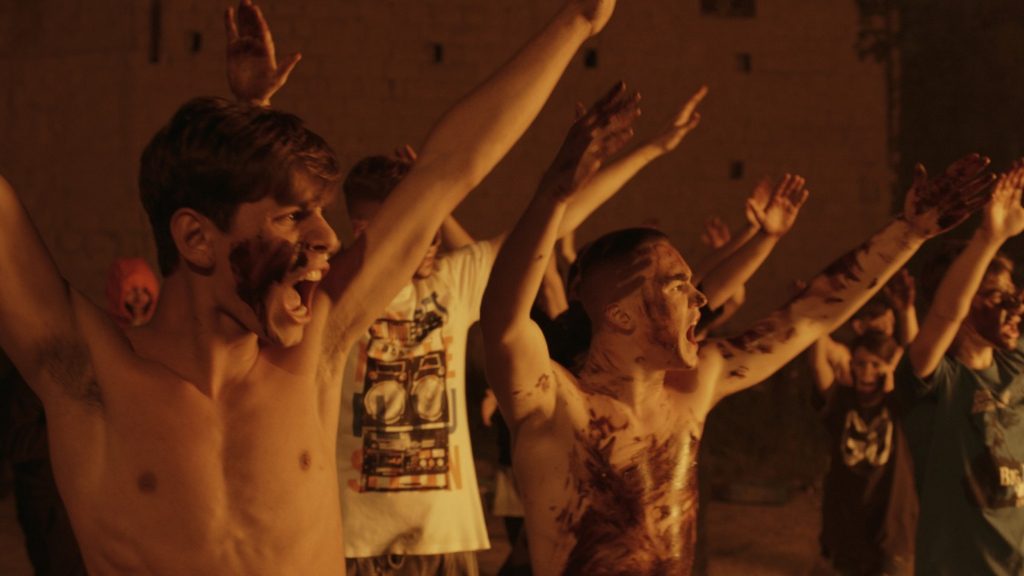Piranhas (La Paranza dei Bambini)

Young teenagers fill a power vacuum in the gang-filled streets of Naples in Claudio Giovannesi’s Piranhas. Based on the book La Paranza dei Bambini (The Children’s Parade) by Roberto Saviano, Naples takes centre-stage as a crime-ridden city overrun by violence in the midst of turf wars. Young adolescent Nicola (Francesco Di Napoli) is plunged into the scene as he is inducted into the world of organised crime. Maurizio Braucci, Giovannesi and Saviano crafted the story from true events but they hone in on an even larger narrative about identity.
At its core, the film is a coming-of-age tale. Nicola is fixated on the glitz of jewellery and the power given to the bosses running the streets. There is a cycle of violence overtly highlighted within these vicious circles. The writers are careful to evoke Nicola’s younger brother with a mind equally susceptible to the false glamour of brutality. Another generation waits in the wings. The thematic core dances between ideas of play and violence. At first, crimes occur as mere extensions of their youthful games. In the opening scene, they steal a Christmas tree. In the next theft, they rob a jewellery store. Then they wield pistols. This pervasive duality is driven home as an ex-boss on house arrest gets his own fix from playing video games which echo the violence of the streets. The perspective of the young men is succinctly evoked as the melding of worlds occur.
There are moments constructed to inspire the potential for cinematic awe that don’t entirely succeed. In one instance, the group of teenagers zip down a cobbled alley with dozens of red balloons streaming behind. In another, fireworks blast into the black night to mask the sounds of the young boys learning to fire their new weapons. There isn’t a fetishism of violence, but rather Giovannesi carefully depicts its allure from the perspective of the young men.
Notably, Nicola’s initial intentions are pure. His own mother is forced, like many local business owners, to cough up protection money to the reigning bosses. He wants to do good for the people in his community by committing himself to the evil of the gangs. Though this criminalisation has hopeful intentions, Giovanessi makes it clear that it’s not so simple to escape. The beginning of the journey promises money, power and women. Inevitably, the ending is not so cheerful.
Mary-Catherine Harvey
Piranhas (La Paranza dei Bambini) does not have a UK release date yet.
Read more reviews from our Berlin Film Festival 2019 coverage here.
For further information about the event visit the Berlin Film Festival website here.



















Facebook
Twitter
Instagram
YouTube
RSS